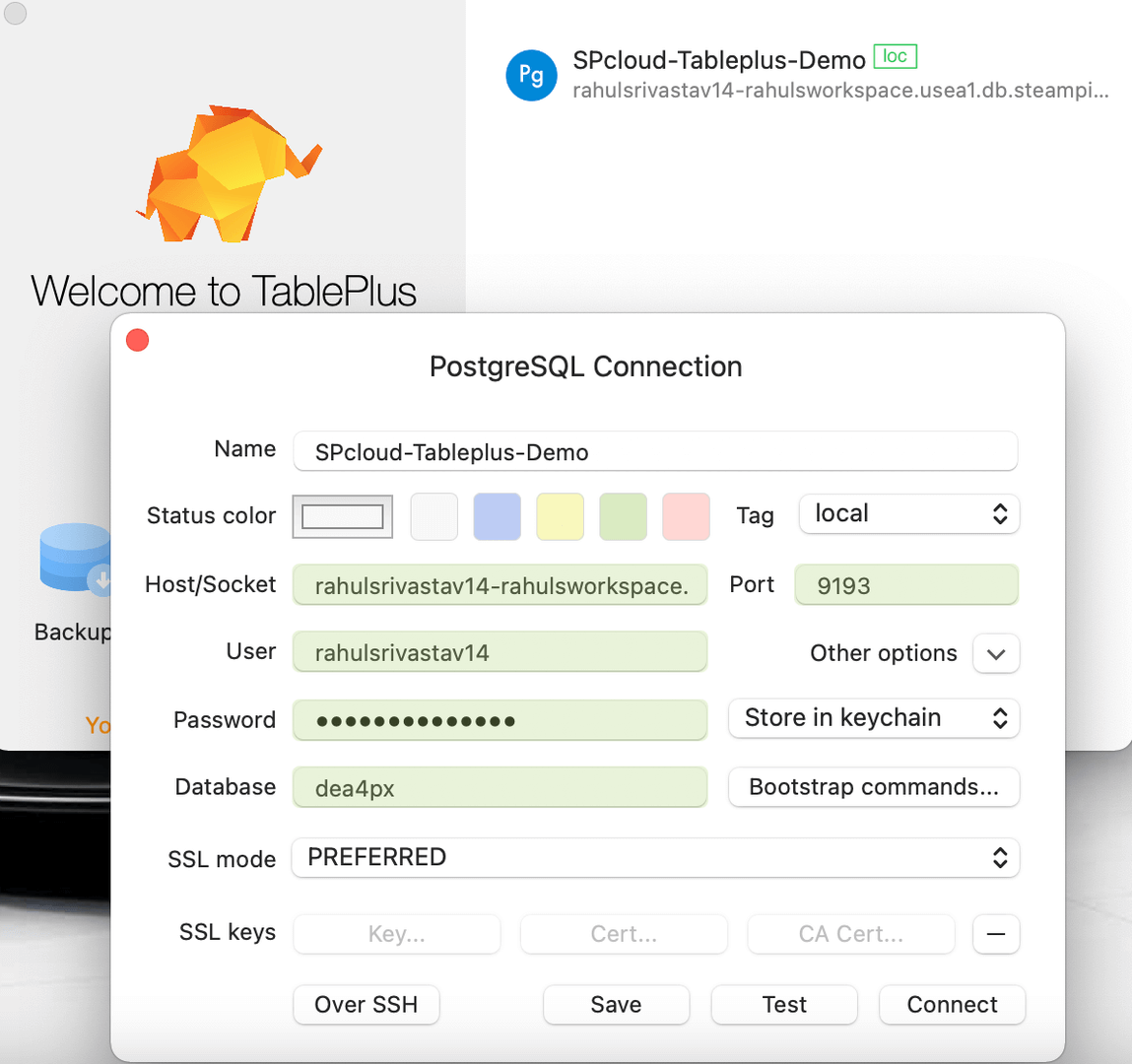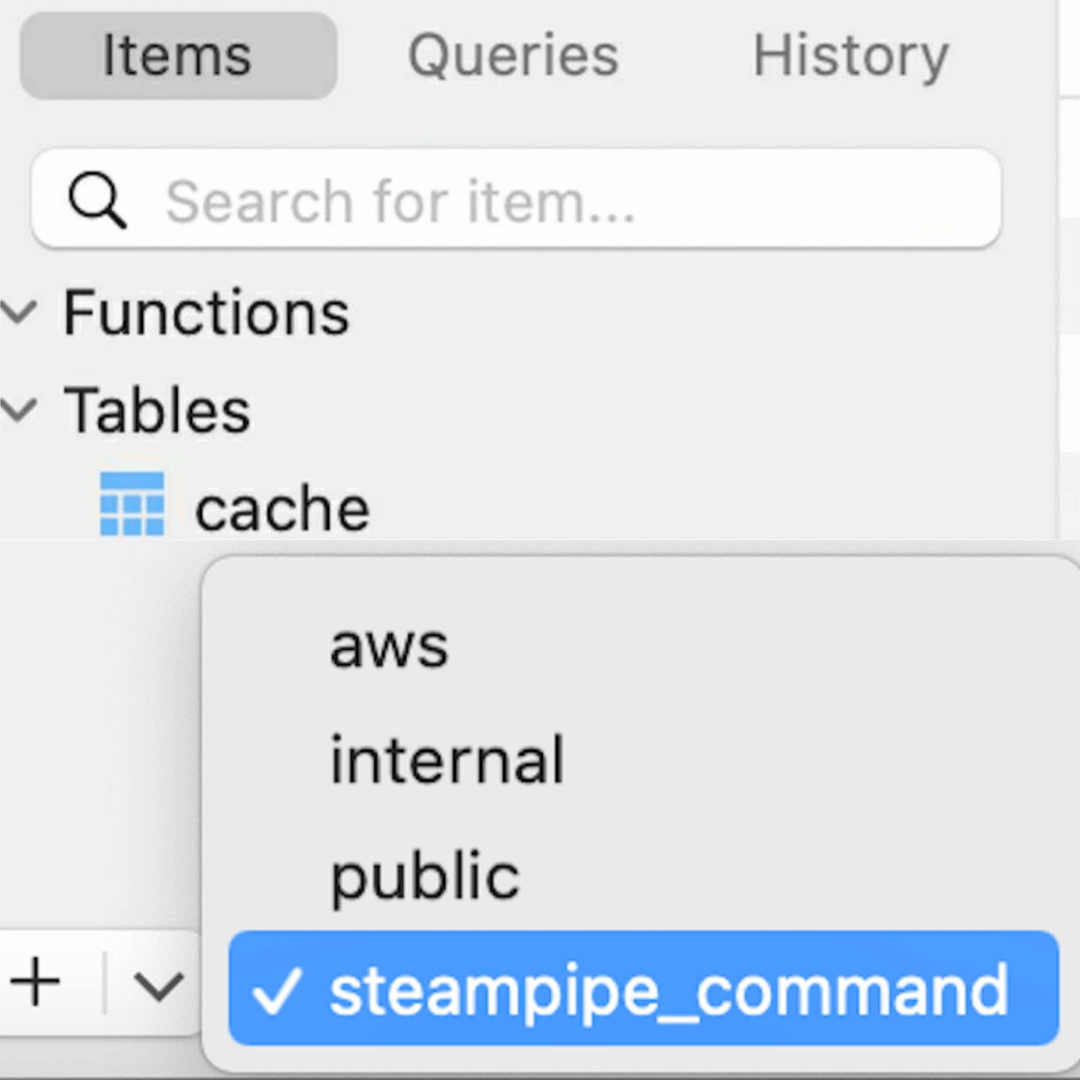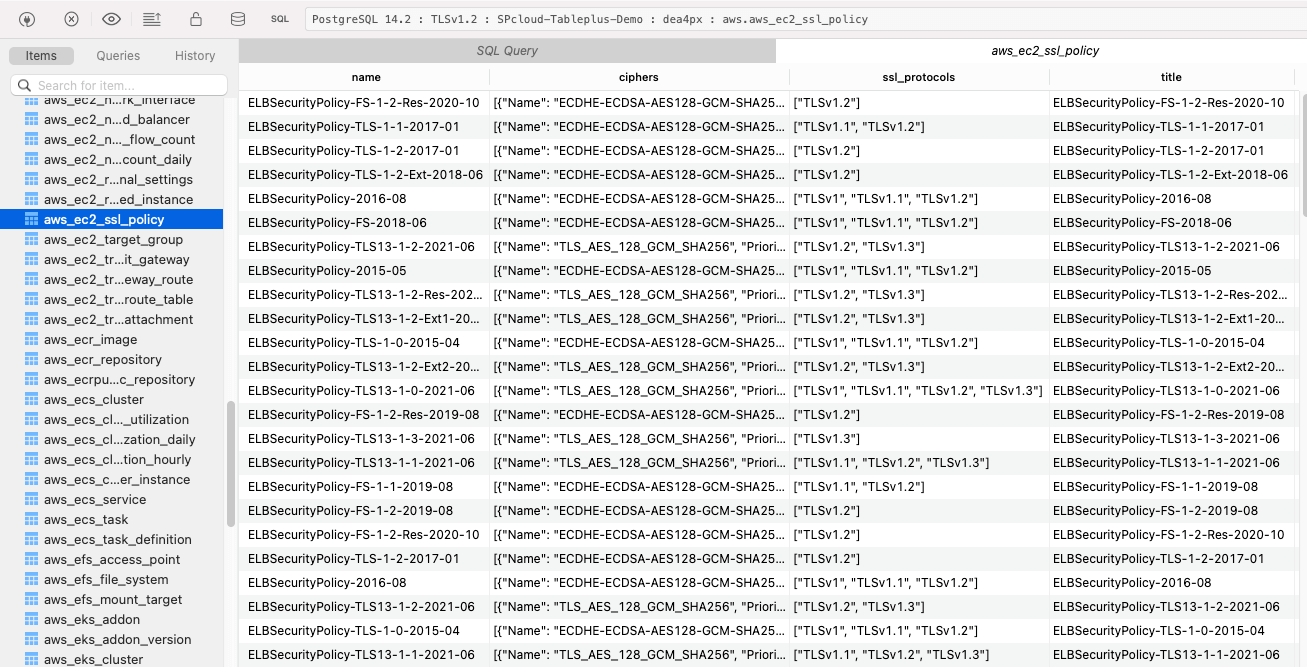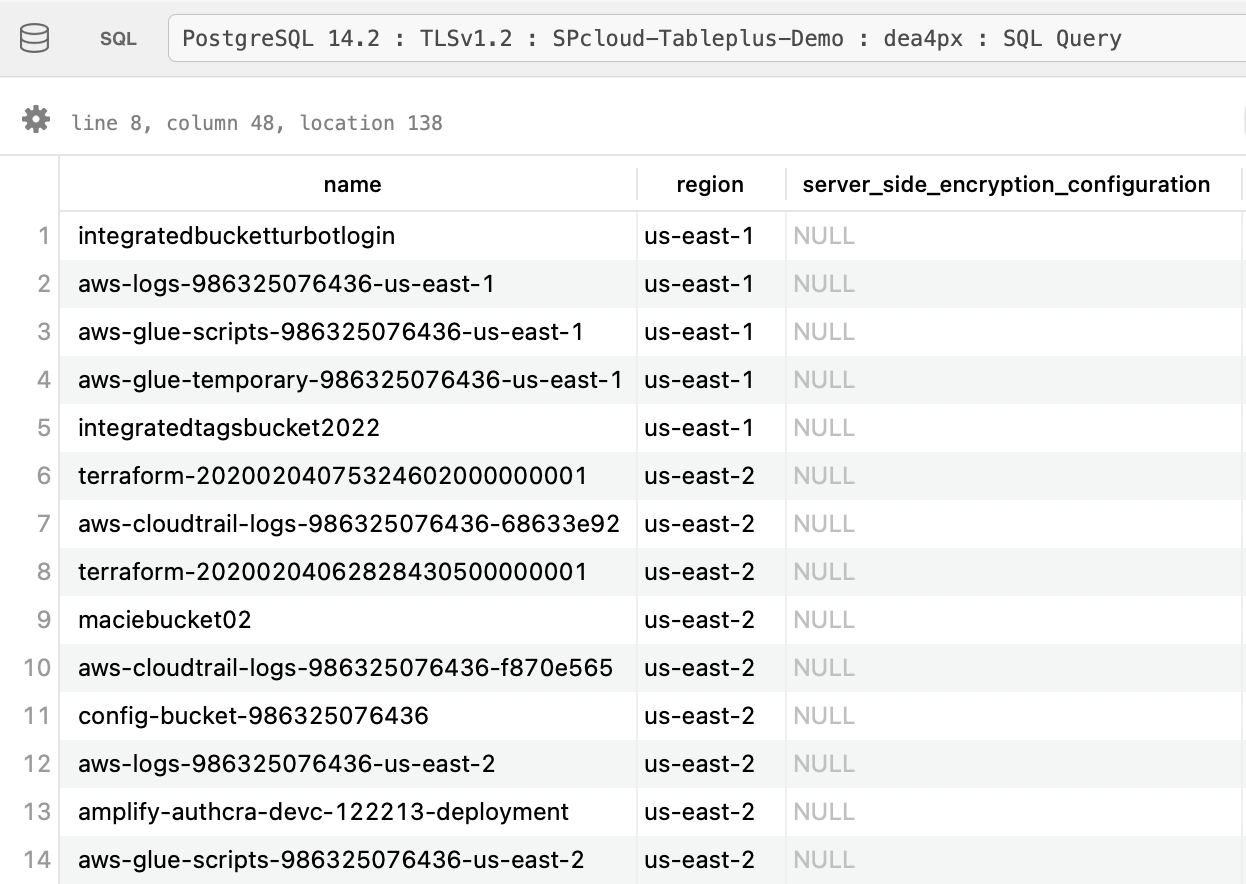Connect to Turbot Pipes from TablePlus
Connect to Turbot Pipes from TablePlus
TablePlus is a SQL IDE to query, edit and manage your databases.
Steampipe provides a single interface to all your cloud, code, logs and more. Because it's built on Postgres, Steampipe provides an endpoint that any Postgres-compatible client -- including TablePlus -- can connect to.
You can get the information needed to connect to your Turbot Pipes database instance from the Developers tab on the Steampipe page for your workspace.

Once the connection to Turbot Pipes is established and tested, you can access the tables provided by the Steampipe plugins, run queries and build reports.
You can also connect TablePlus to
Steampipe CLI. To do that, run
steampipe service start --show-password and use the displayed connection
details.
Steampipe service is running:
Database:
Host(s): localhost, 127.0.0.1, 192.168.29.204
Port: 9193
Database: steampipe
User: steampipe
Password: 99**_****_**8c
Connection string: postgres://steampipe:99**_****_**8c@localhost:9193/steampipe
Getting started
TablePlus is available on the desktop and the free version can be used without any need for account creation. In this example we will create a Turbot Pipes connection with TablePlus and query the AWS EC2 SSL policies.
To establish a new connection click on Create a new connection, select
PostgreSQL and click Create. Enter the Turbot Pipes connection details, keep
the SSL mode (Preferred), and click Test to verify the connection.

Once you've connected to Turbot Pipes, you can access the AWS plugin and its tables from the namespace provided at the bottom left of the window.

Here we select the aws_ec2_ssl_policy table. TablePlus displays the table's
schema and previews the data. You may also choose to export the data to CSV,
JSON or SQL.

Run your first custom query
TablePlus comes with a SQL query editor that you may use to write a custom query. For example, we can use this query in the editor to fetch the S3 buckets with default encryption disabled
select
name,
region,
server_side_encryption_configuration
from
aws_s3_bucket
where
server_side_encryption_configuration is null;
